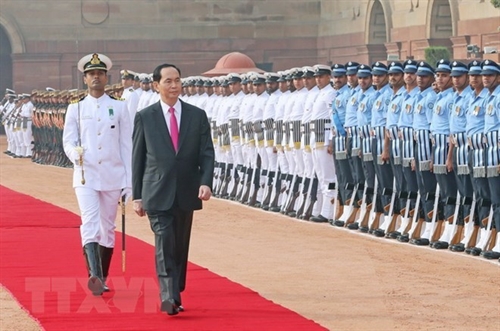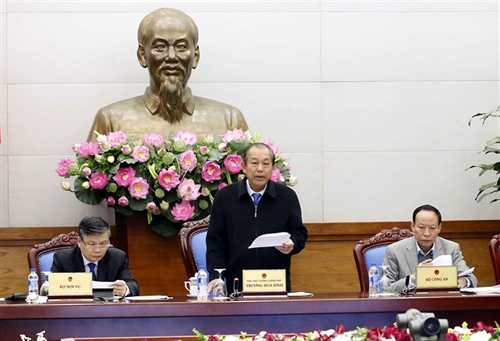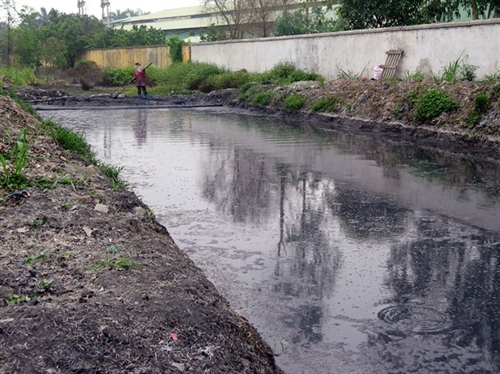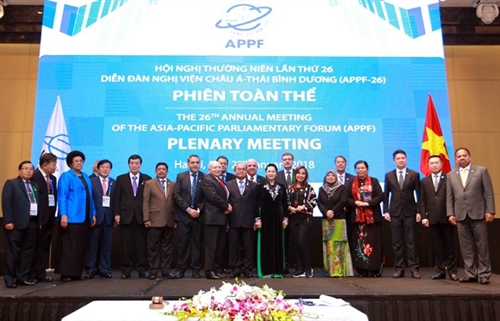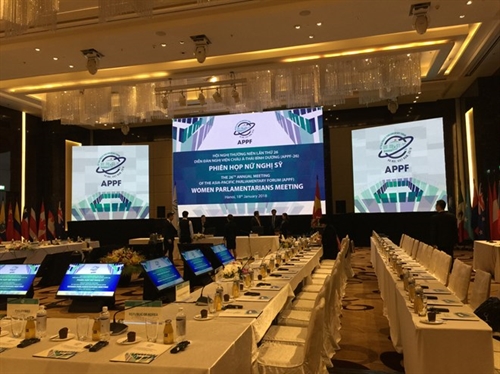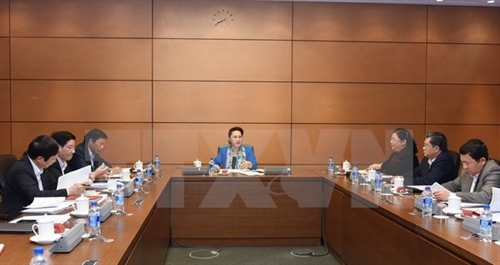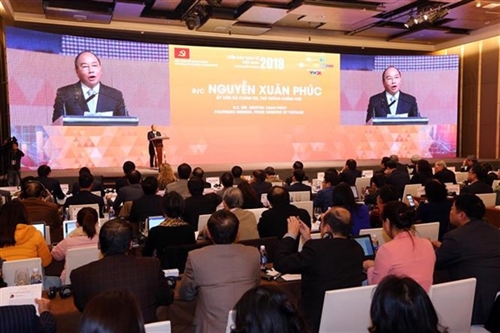The Comprehensive and Progressive Trans-Pacific Partnership (CPTPP) Agreement would be a vital deal in utilizing free trade and ensuring sustainable development in Vietnam, said Minister of Industry and Trade Tran Tuan Anh.
Therefore, economic sectors should prepare and take the initiative in economic restructuring in order to maximize the pact, which is scheduled to be inked in Chile on March 8 (local time) by ministers from its 11 member countries, Anh told the Vietnam News Agency (VNA).
The minister said such sectors as garment-textiles, footwear, food processing, beverage, confectionery, tobacco, wine and beer will benefit most from the deal.
He cited a research jointly conducted by the World Bank (WB) and the research institute under the Ministry of Planning and Investment as saying that Vietnam’s GDP would be 1.1 percent higher in 2030 thanks to the CPTPP.
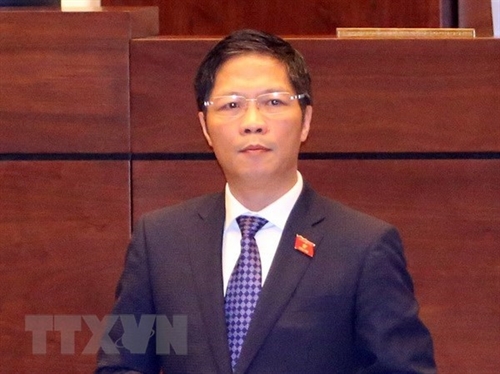 |
| Minister of Industry and Trade Tran Tuan Anh__Photo: VNA |
Like other member countries, Vietnam has committed to market opening and trade facilitation and liberalization towards lifting non-tariff barriers, the minister said.
At the same time, the country will continue to streamline State management of market development, he said, stressing that through the agreement, competitiveness of the national economy as well as businesses will be likely improved.
Citing 36 billion USD in foreign direct investment (FDI) poured into Vietnam in 2017, Anh said the pact would lead to breakthroughs in the flow of investment into the country.
Domestic businesses, therefore, will have more resources to develop further and access technologies as well as quality human resources, the minister emphasized.
However, apart from opportunities, the agreement would pose challenges to both the business circle and people if less attention was paid to fulfilling integration commitments, the minister warned.
He cited lessons withdrawn from Vietnam’s joining the World Trade Organization (WTO) and signing of the Bilateral Trade Agreement (BTA) with the US to clarify his views.
The official said a number of fields in the agriculture sector like sugarcane exploitation and sugar industry have remained slow in restructuring, as compared with other sectors like telecommunications, e-commerce, garments-textiles and footwear.
According to him, the Ministry of Industry and Trade has designed specific communications projects in order to help businesses and people grasp opportunities generated by the agreement.
The ministry will also submit an overall action plan to the Government in preparation for the implementation of Vietnam’s integration commitments while reviewing its legal framework.
The CPTPP is set to take effect in early 2019 after it is ratified by at least six member countries. Its member economies make up about 13 percent of the global GDP.
After the US withdrew from the Trans-Pacific Partnership (TPP), the predecessor of the CPTPP, in 2017, the remaining 11 countries (Australia, Brunei, Canada, Chile, Japan, Malaysia, Mexico, New Zealand, Peru, Singapore, and Vietnam) agreed to maintain the deal and rename it CPTPP.
They agreed on the revised content of the agreement on January 23, 2018.
On February 21, the full text of the CPTPP was announced, which is considered a sign showing that the 11 countries are ready to sign the agreement.
According to Reuters, more than 20 provisions of the CPTPP were suspended or changed compared to the TPP.
Earlier, US President Donald Trump said his country would consider re-entering the CPTPP if the US could get a better deal.- (VNA/VLLF)
